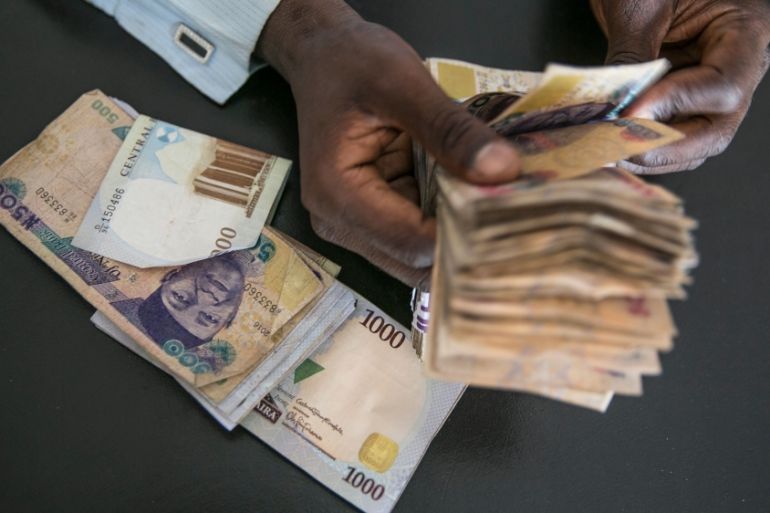Nigeria’s parliament passes record budget for 2020
The budget assumes a deficit of 1.52 percent of estimated GDP, to be financed with foreign and domestic debt.

Nigeria’s parliament passed a record 10.59 trillion naira ($35bn) budget for 2020 on Thursday, paving the way for the country’s likely return to the international debt market next year as it struggles to shake off the impact of a recession.
The budget passed by lawmakers assumes a deficit of 1.52 percent of the estimated gross domestic product – representing around 2.18 trillion naira ($7.2bn) – to be financed through foreign and domestic borrowing.
Keep reading
list of 3 itemsNigeria border closure: Businesses complain of revenue loss
Chevron is trying to sell two Nigerian businesses – again
In 2019, the debt office said it did not tap the international debt market because of time constraints before the end of its budget cycle. The West African country held its last Eurobond sale in 2018, its sixth outing, where it raised $2.86bn.
Nigeria emerged from a 2016 recession in 2017, but has struggled to boost growth. Ratings agency Moody’s downgraded the country’s outlook to negative from stable on Wednesday, citing an increased risk to government revenue.
Nigeria’s Senate, parliament’s upper house, passed the plan. It was also approved by the lower house a few hours later.
The budget assumes crude production of 2.18 million barrels a day and an oil price of $57 per barrel. Nigeria is Africa’s top oil producer.
The spending plan includes a value-added tax increase from five percent to 7.5 percent. The budget is also up from the 8.83 trillion-naira budget for 2019 and tops the previous record spending plan, the 9.12 trillion-naira budget for 2018.
President Muhammadu Buhari last week asked parliament to approve a request for $23bn in foreign borrowings for infrastructure projects. It was not immediately clear if that sum was included in the budget passed by lawmakers on Thursday.
A central goal of Buhari’s tenure has been to increase non-oil revenues to reduce Nigeria’s dependence on crude oil sales.
In the president’s first term, he was embroiled in a power struggle with the legislature, leading to months of delays in the implementation of spending plans.
But loyalists in his ruling party now occupy key parliamentary roles, which has sped up the passage of legislation.
“I hope we continue to work together as colleagues to ensure the 2020 budget is fully implemented,” said Senate President Ahmed Lawan after passing the budget.
Lawmakers increased the budget from the 10.33 trillion-naira ($31.3bn) spending plan that Buhari presented to them in October. The president must agree to the revised plan before signing it into law.